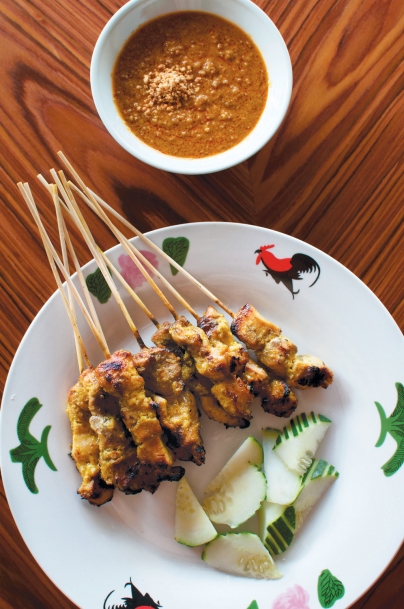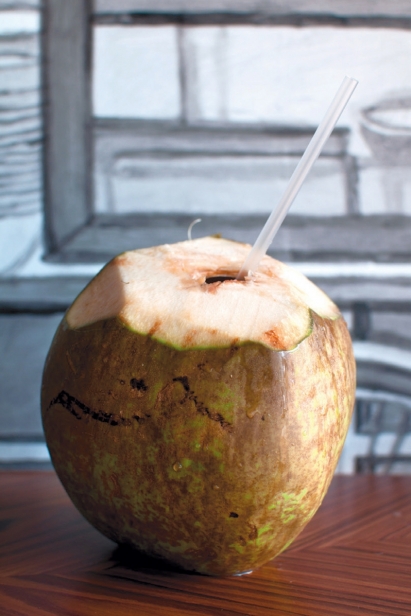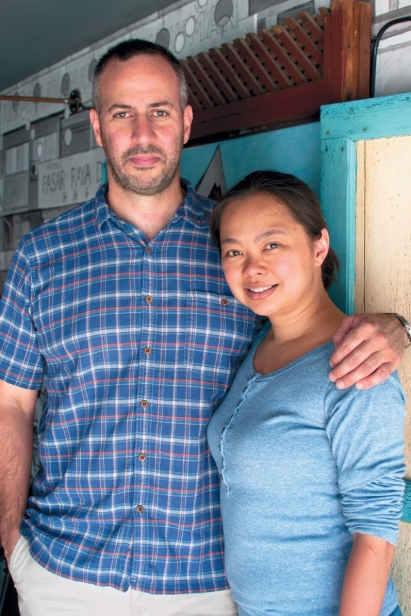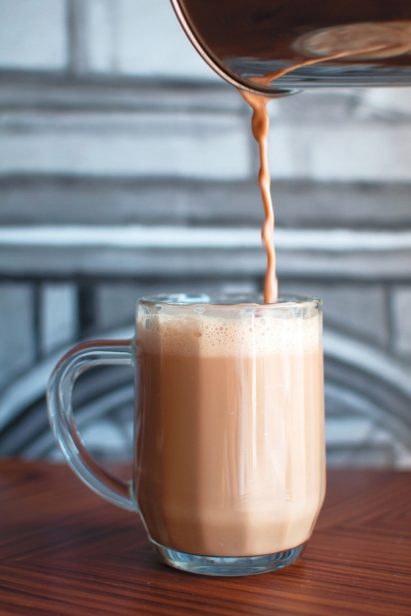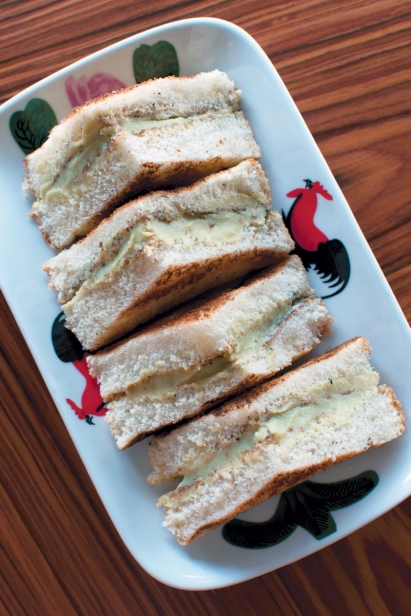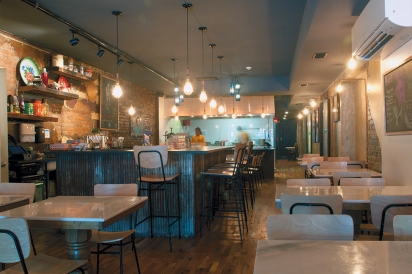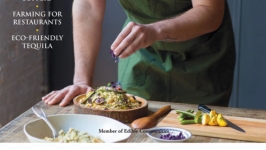Global City: A True Taste of Malaysia
One woman brings the flavors of her home country to South Philly
To step into Sate Kampar on East Passyunk Avenue is to step into a restaurant half a world away. On the left as you enter, the restaurant’s name is splashed across a corrugated tin panel and a bamboo shade. A fragrant smokiness fills the air as you push through the door. Inside, trios of blue lanterns hang over the tables and blue-and-white wooden shutters on the walls serve as portals to Malaysia, the muse of Sate Kampar.
There had never been a Malaysian restaurant like this in Philadelphia—perhaps even the United States—until Sate Kampar opened in February 2016. It’s exactly the kind of place chef/owner Ange Branca was looking for when she moved to Philadelphia more than a decade ago, a small, focused restaurant whose menu hews tightly to its namesake: sate skewers grilled over coconut coals.
Malay restaurants have existed in Philadelphia, of course. In Chinatown, Penang and Banana Leaf have served exhaustive menus of Malaysian dishes for years. “Often, a Malaysian restaurant in Philly has to represent the whole country,” Branca says. But Malaysia’s flavors and dining experiences are diverse: You can dine on refined Malay classics at upscale restaurants, slurp at a noodle stall, or grab poh piah (a type of spring roll) on the go. So while Branca often visited Chinatown for her Malaysian-food fix, she missed the laid-back open-grill spots of her hometown, Kampar.
After years of wishing someone else would open a sate restaurant in Philadelphia, Branca and her husband John decided to open one themselves. Ange had experience with Malaysian cooking thanks to her family back in Kampar: Her godmother was an accomplished home chef who taught all the kids in the family how to cook, and several of her aunts and cousins own food stalls in Kampar. South Philly seemed ready for a Malaysian restaurant, too, between its growing Southeast Asian community and its prolific dining scene. So, last year, the couple started planning.
Authenticity was a key part of that plan. If Ange and John were going to offer a very specific experience of Malaysian dining, they wanted to get it right—down to their ingredients, cooking methods, coffee program and even the ambiance. “What’s the point if you’re not doing it the whole way?” John asks.
Take the coconuts, for example. A friend pointed out that diners would be none the wiser if Sate Kampar just used the coconuts more readily available in the United States for its drinks and coconut-shell charcoal. Instead, the Brancas found an organic farmer in Florida who grows the Malayan Dwarf coconuts they wanted. These coconuts taste better, John says. They taste right.
Friends offered similar advice when the Brancas were devising the restaurant’s coffee program. Thai and Vietnamese coffee are a little easier to source in Philadelphia, given the city’s sizable Vietnamese population. But Malaysia’s kopitiam (coffee shop) culture is a hundredyear- old tradition of cafes serving coffees and teas served black or iced and sweetened, with evaporated or condensed milk. Malaysian coffee culture has faltered in recent years, Ange says, so it is important to her to help keep it alive. “We’re trying to do justice to it,” John says.
If you want to recreate a Malaysian dining experience across the world, it helps to source straight from that island nation. Ange examined the traditional stoves at sate restaurants in Malaysia and designed her own similar custom grills to comply with U.S. regulatory codes. The couple also shopped for most of the restaurant’s furnishings, as well as its rooster bowls and plates, in Malaysian antique shops.
It all combines to create one incredible atmosphere. Skewers of chicken, beef, goat, fish and tofu are covered in marinade and cooked over Malaysian coconut-shell coals on an open-air grill. A barista slings cups of coffee and tea from pitcher to pitcher, mixing in ice and condensed milk to each customer’s taste. Lined up behind the bar are vessels of ribena syrup, Yeo’s chrysanthemum tea and the malt-chocolate powder known as Milo. Exposed brick walls and small vintage touches recreate the right sights and scents of a sate restaurant you’d find in Malaysia.
Sate Kampar is so faithful to Malaysian culture that it won over the expat community and diaspora within months of opening on East Passyunk. Its sate skewers and small menu of dishes like nasi lemak and beef rendang are nostalgia-inducing comfort food for anyone who has been to and loved Malaysia.
Especially the kaya toast. Melissa Pang, a restaurant obsessive who grew up in the Philadelphia area, was thrilled to find that Sate Kampar serves kaya, a jam traditionally made with coconut milk, eggs and sugar that is a staple of many homes in Southeast Asia. Her father, who came to the U.S. from Singapore, used to make it for Pang as a child. “I’ve never seen it on a menu anywhere else,” she says. When she brought her father to Sate Kampar for dinner, he was so thrilled that he ordered more kaya toast to go.
Nostalgia is exactly why Ange put kaya toast on the menu in the first place. It reminds her of her own grandmother and she was frustrated that she could hardly ever find it. She’s not sure why Malaysian restaurants in the States have ignored kaya toast on their otherwise comprehensive menus, but she suspects simplicity is the culprit. “We take it for granted in Malaysia,” Angie says. “It’s a jam, such a basic thing.”
But while Sate Kampar is fast becoming the go-to Malaysian restaurant in Philadelphia, Ange says there’s still plenty of room for the stalwarts in Chinatown. Since Sate Kampar is so specialized, they’re really still the only purveyors of most classic Malay dishes.
And the Brancas both hope this is just the beginning for Malaysian cuisine in Philadelphia and beyond. “We’re being told by people who look for Malaysian food that we’re really it,” John says. “There’s nothing like this in the U.S.
Sate Kampar
1837 E. Passyunk Ave.
267.324.3860


